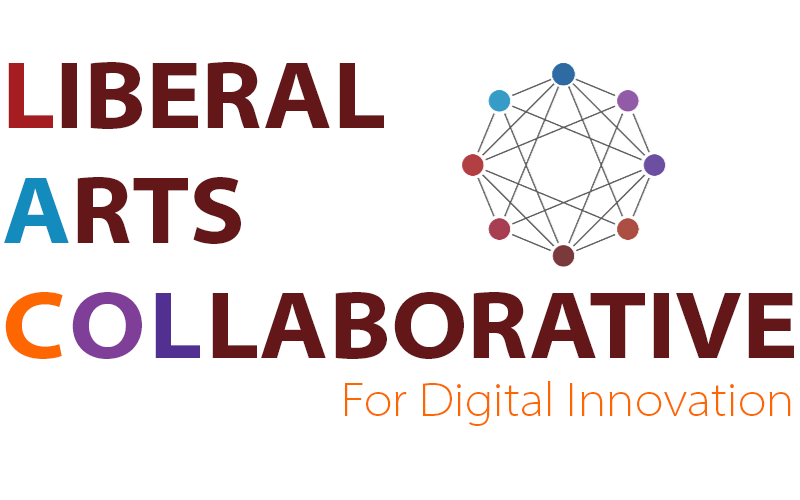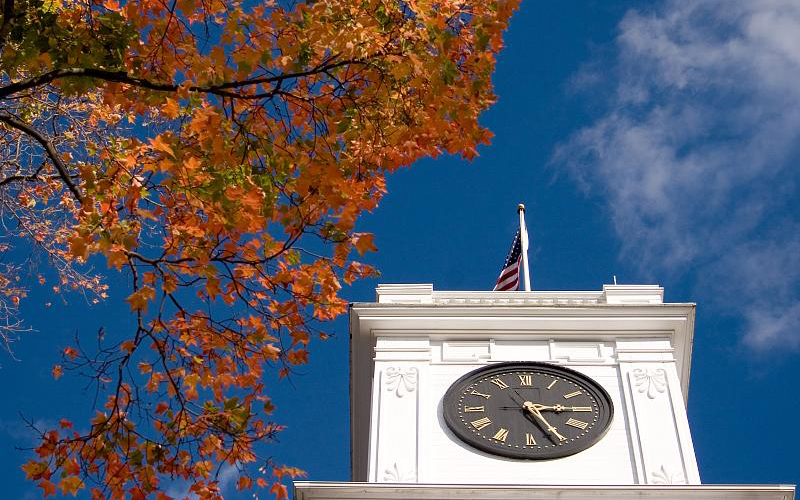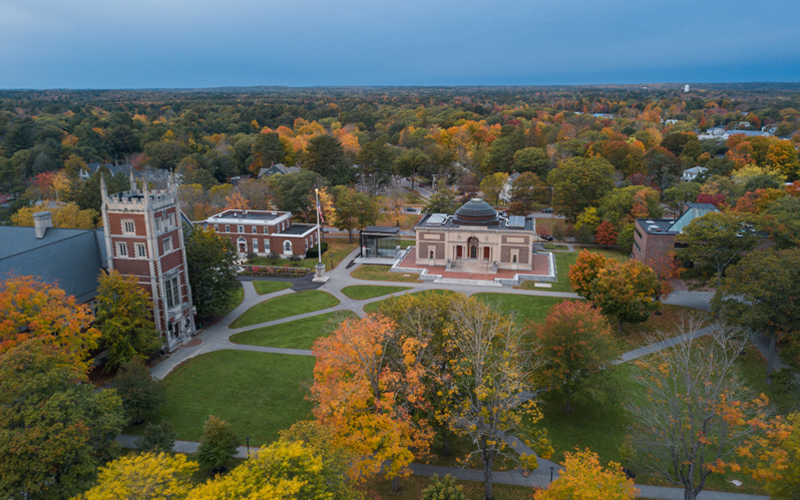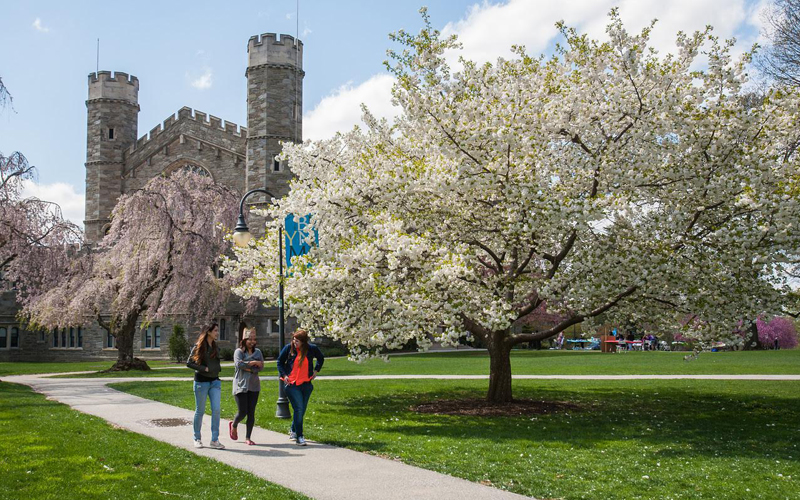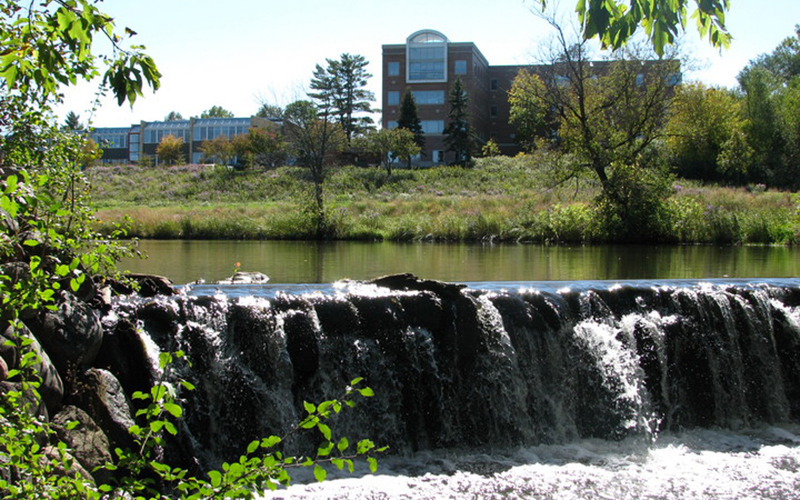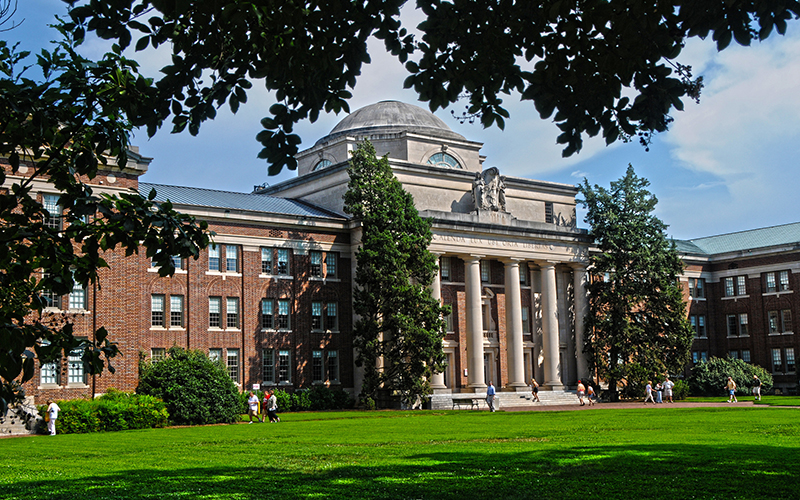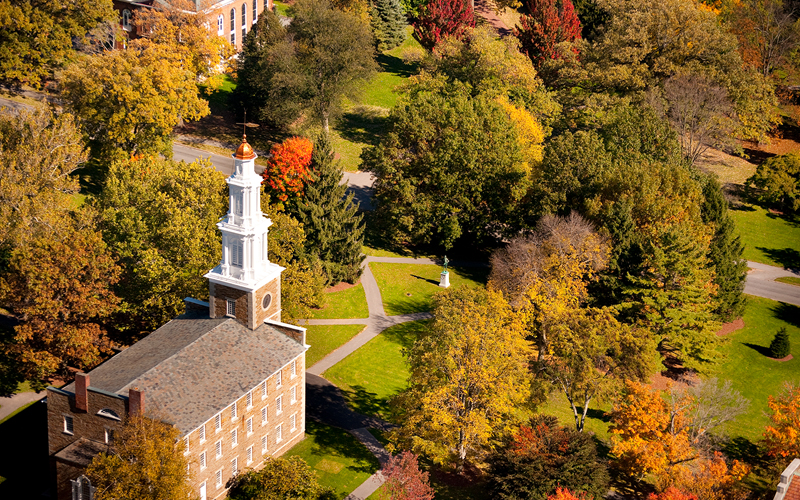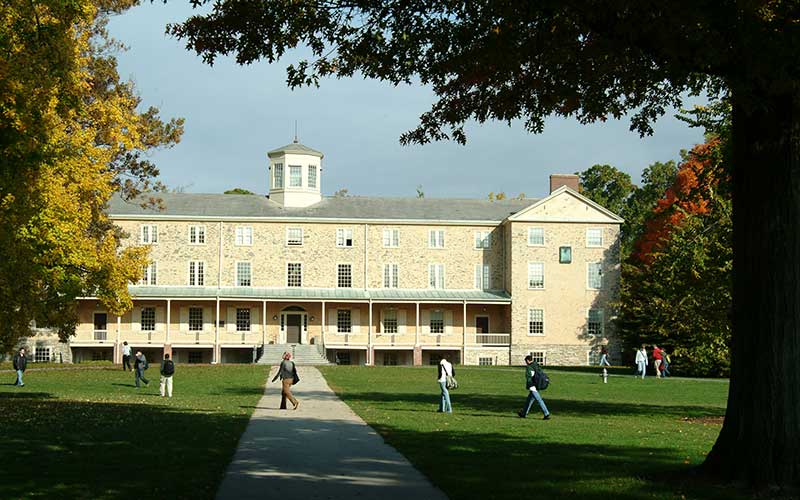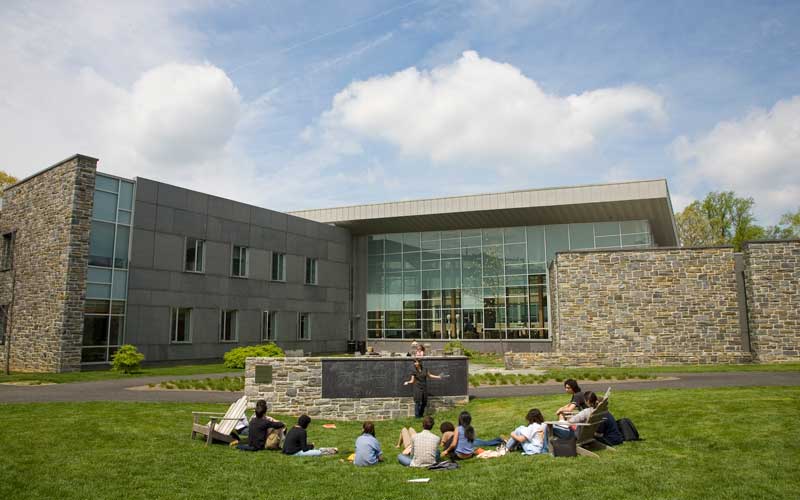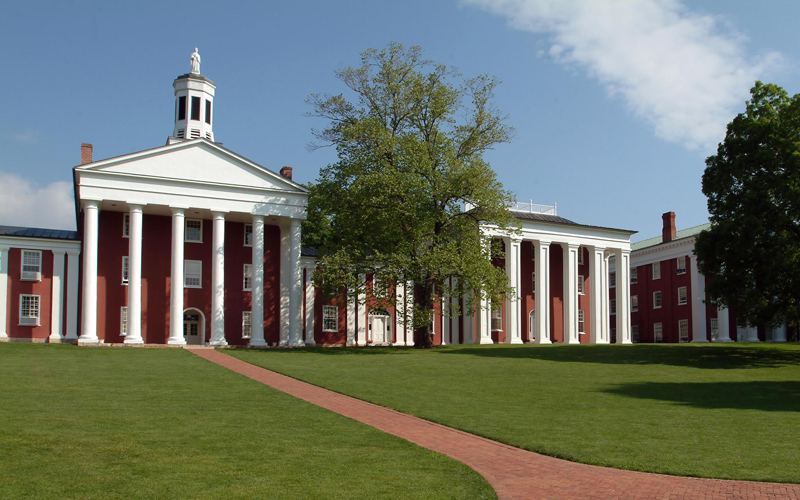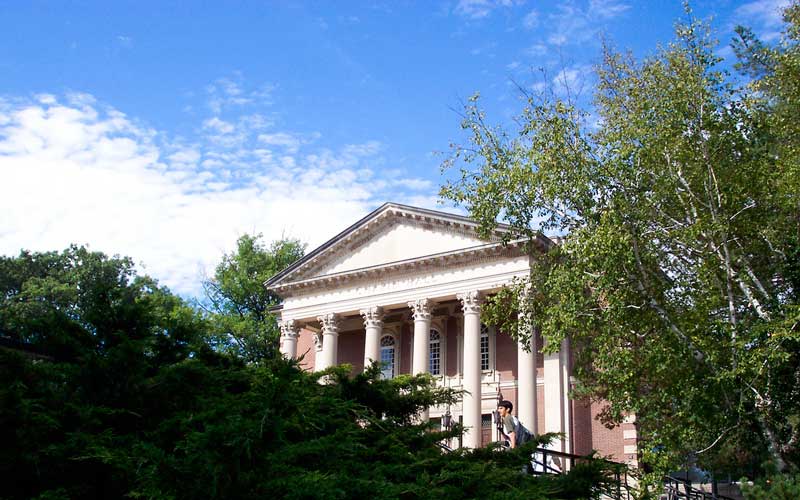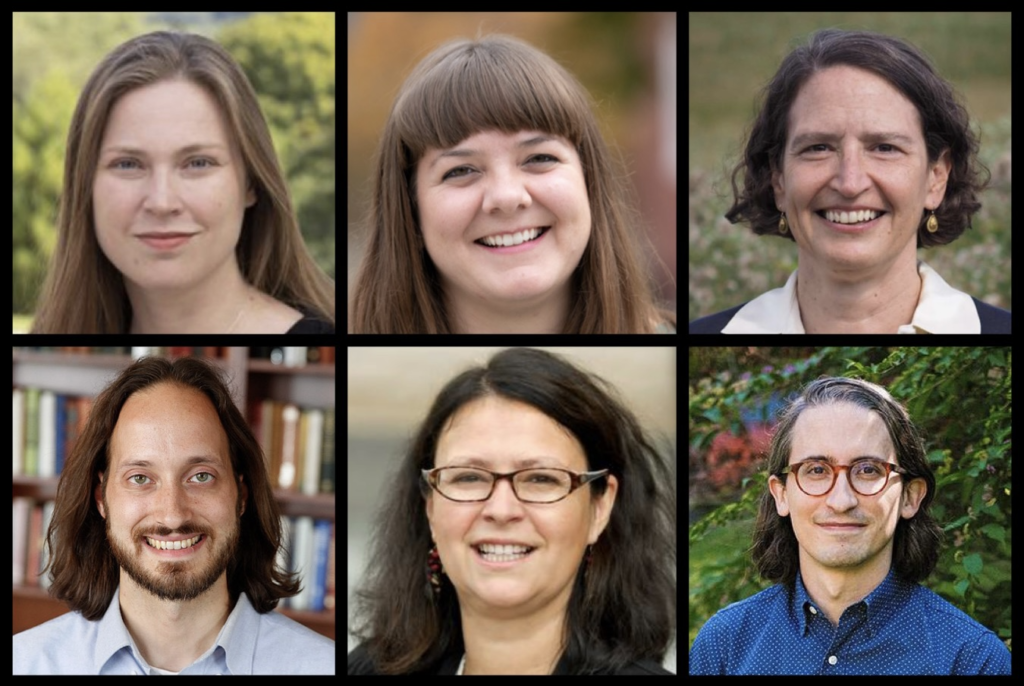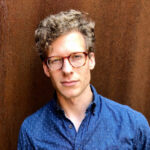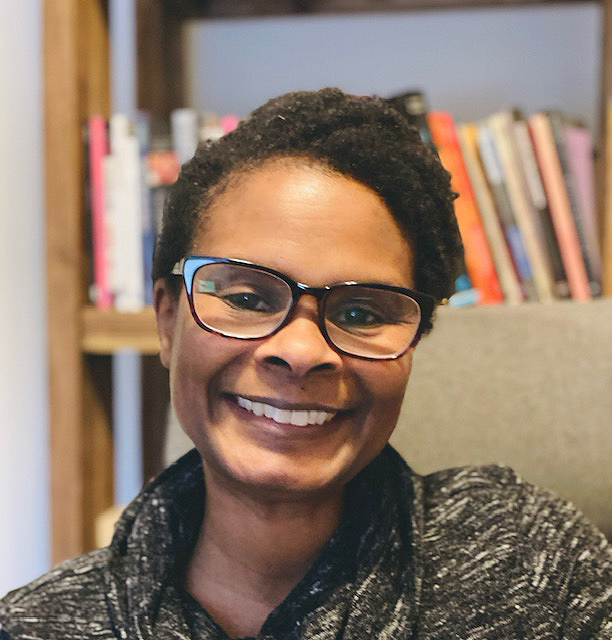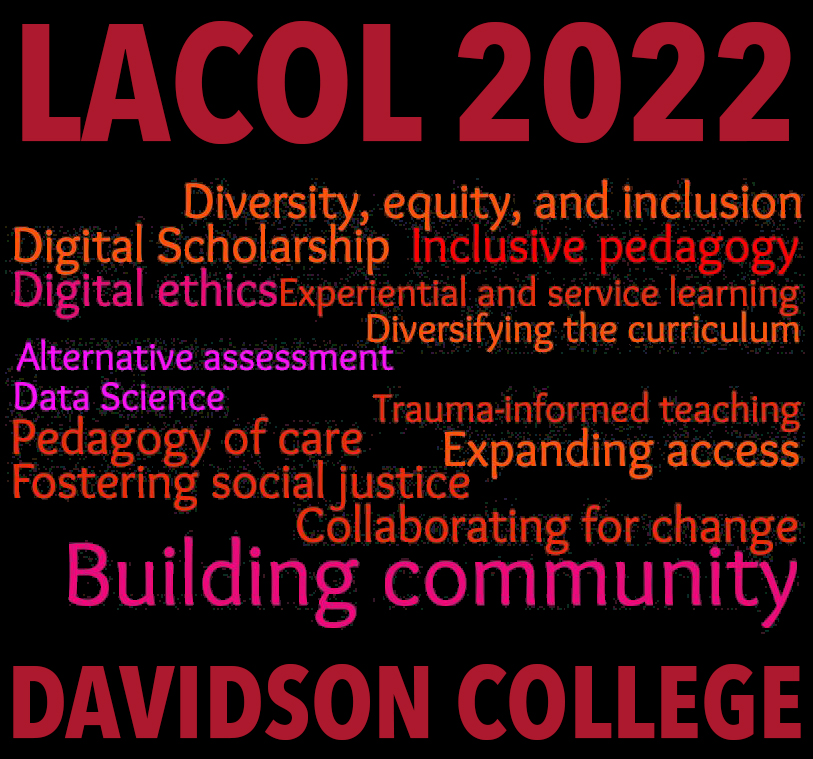The partners of the Liberal Arts Collaborative for Digital Innovation represent the highest standard of student-centered education. Through our collaborations, we are exploring the future of teaching and learning in a networked world to support our mission as residential liberal arts institutions.
LACOL DH panel at ACH 2023 – June 29
DH, Social Justice, and Liberal Arts: Developing an online, multi-campus DH course through the LACOL consortium
Thursday, June 29 at 5:15pm-5:45pm EDT (online)
Beth Fischer1, Mackenzie Brooks2, Liz Evans3, Austin Mason4, Nhora Lucía Serrano5, José Vergara6
1Williams College Museum of Art, United States of America; 2Washington & Lee University; 3Liberal Arts Collaborative for Digital Innovation (LACOL); 4Carleton College; 5Hamilton College; 6Bryn Mawr College
Through a unique collaboration across peer colleges, LACOL’s Digital Humanities: Social Justice Collections and Liberal Arts Curricula has fostered a prodigious environment of original, collaborative research, undertaken by students as part of an interdisciplinary online course. First taught in 2021, the course will be offered for the third time during summer 2023.
Over eight weeks, the team of instructors introduces students from LACOL’s eleven partner schools to ways of working with digital humanities data, digital modes of humanistic inquiry, and specific approaches including text analysis and geographic analysis. Students work in teams, closely mentored by the instructors, to implement projects that use digital methods to explore historically and socially relevant topics drawn from their engagement with multiple campus archive collections, such as representations of BIPOC at PWIs in the 1960s and the documentation of women’s suffrage and environmental/climate movements across campuses.
In this presentation, the teaching team, course development collaborators, and the director of LACOL share how this course was developed and implemented, and the ways the partner schools have managed handoffs and transitions between their own institutions and this shared collaborative curriculum. We will address key components for the course’s success, especially how the model developed under LACOL might be enacted among institutions that do not have such a pre-existing framework and how the course has sparked ongoing student engagement with DH and social justice topics, and led to the development of new courses at partner institutions.
ACH Session #6B: Perspectives on Critical Pedagogy
Why Teach ‘Why College’ with A. Hines
Multicampus Microlearning Series – Winter 2023
Why Teach ‘Why College’
Date/Time: Wednesday, January 25, 2023, 3:00pm-4:15pm Eastern
Format: interactive Zoom discussion
Leader: Andy Hines, Associate Director of the Aydelotte Foundation, Swarthmore College

There is a robust critical conversation about the past and present of American higher education that has increasingly become the subject of courses at liberal arts colleges. One example is a first-year seminar course at Swarthmore, Why College, taught by research scholars of the Aydelotte Foundation.
What does it mean to study “the American university” at institutions that are often de-emphasized in conversations in critical university studies? Do students really want to investigate the institutions where they study, let alone the institutions they don’t attend? How does this work connect us to colleagues at different kinds of institutions in a critical moment for higher education? Andy Hines, Associate Director of the Aydelotte Foundation, will address these questions and more with a brief presentation and conversation about his work teaching critical university studies courses.
Andy Hines is the Associate Director of the Aydelotte Foundation at Swarthmore College. He is the author of Outside Literary Studies: Black Criticism and the University and the editor of a keywords collection on higher education to be published by Johns Hopkins University Press.
Bryn Mawr and Haverford connect students around the world through Transformative Sustainability Project
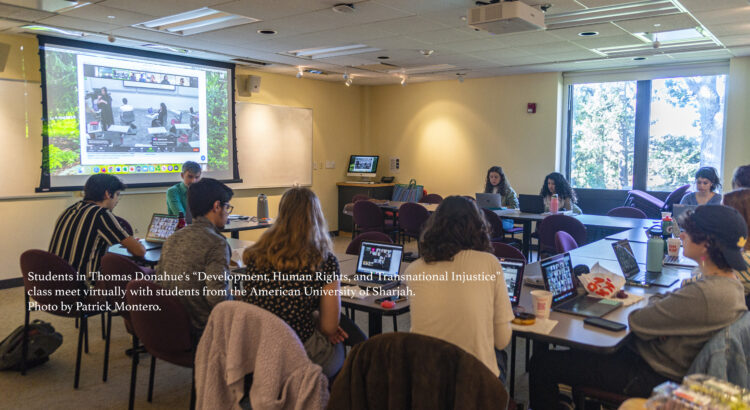
By T. Donahue-Ochoa, Visiting Asst Professor of Political Science, Haverford College, M. Darwish, Lecturer and Coordinator of Bi-Co Arabic Program, Bryn Mawr and Haverford Colleges, and E. Hartman, Executive Director of the Center for Peace and Global Citizenship, Haverford College.
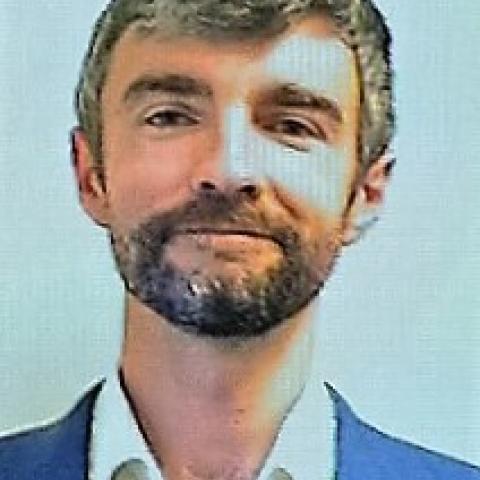
At Haverford and Bryn Mawr, many students and faculty are co-creating an ocean-spanning online exchange. It’s called “the Transformative Sustainability Project.” In it, these scholars work with peers in the Persian Gulf on some of the world’s largest questions. How can we join cross-regionally to sustain our communities? How can we use the UN Sustainable Development Goals as shared yardsticks of progress? To answer, the peer groups divide into teams spanning the Philly suburbs and Sharjah in the United Arab Emirates. As they tackle these problems, they swap their localized perspectives. For a time, they see the issues from the standpoint of 7,000 miles away.
With funding from the Stevens Initiative, the Project partners colleagues at Haverford and Bryn Mawr, Dickinson College in Carlisle PA, and American University Sharjah (AUS). It matches seven Pennsylvania-based faculty with six at AUS. The faculty duos work across disciplines in teaching paired courses. These aim to foster ties across cultures and empathy for differences. All course pairs hold several joint meetings. They also group their students into the ocean-spanning teams. Each of those does a term-long assignment on local and global efforts to sustain communities.
We can learn a lot by giving up our North Atlantic viewpoints for a while, instead seeing things from the Persian Gulf.
– – Prof. T. Donahue-Ochoa, Haverford College
Three Haverford-Bryn Mawr faculty currently work on the Project. In the spring, Manar Darwish will offer the course, “Society and Culture of the Middle East through Film.” “Its horizons will be widened by our Sharjah partners,” says Darwish. Meanwhile, Eric Hartman is now teaching “Human Rights in Philadelphia and Pennsylvania in a National and Global Context.” And Tom Donahue-Ochoa is offering “Development and Transnational Injustices” and “Comparative and Transnational Studies.” They’re pairing those courses with AUS counterparts offered by Salma Thani and Kristina Katsos.
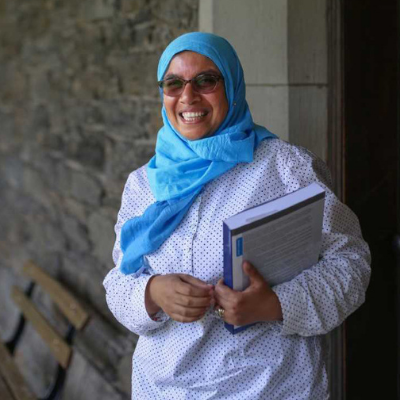
Language Pedagogy & Proficiency Workshop
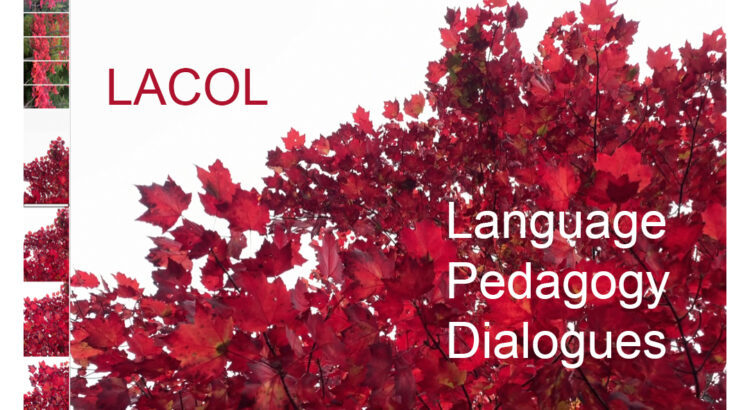

Date: Monday, 31 October (arrival and group dinner on Sunday, Oct 30)
Location: Swarthmore College (campus location TBA)
Agenda: LACOL Workshop – Language Pedagogies, Proficiency, and Reverse Design
Facilitator: Dr. Cathy Baumann, U. Chicago CLC
Register by Oct 26: https://forms.gle/htzeBDTaLvYeLrAL6
Workshop Goals:
- Bring LACOL language leaders, teachers and experts together for a substantive 1-day workshop facilitated by C. Baumann
- Use proficiency as a lens to frame exploration of pedagogies and assessment strategies that support various teaching modes and styles; agenda is adaptable based on participant interests
- Share learning and dialogue to continue building relationships across LACOL language programs and people; participants may consider opportunities for collaboration to enhance liberal arts language offerings (areas of common interest such as lesser taught languages and learning enrichments for students heading into study-abroad)
LACOL 2022 at Davidson College
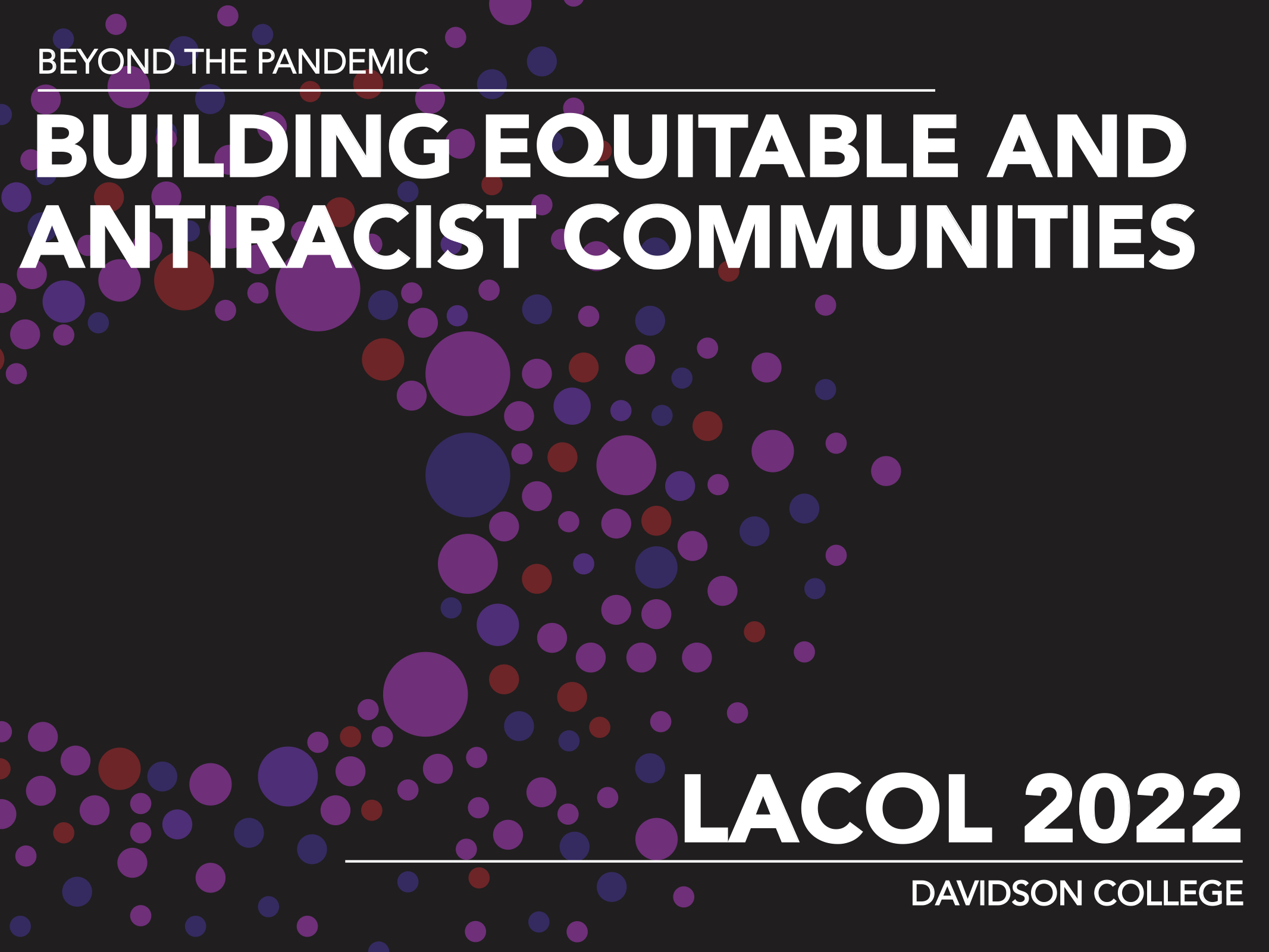
PROGRAM
Workshop Report: LACOL 2022 Workshop Highlights
Workshop Program: LACOL 2022 Program
Workshop Schedule: LACOL 2022 Schedule at a Glance
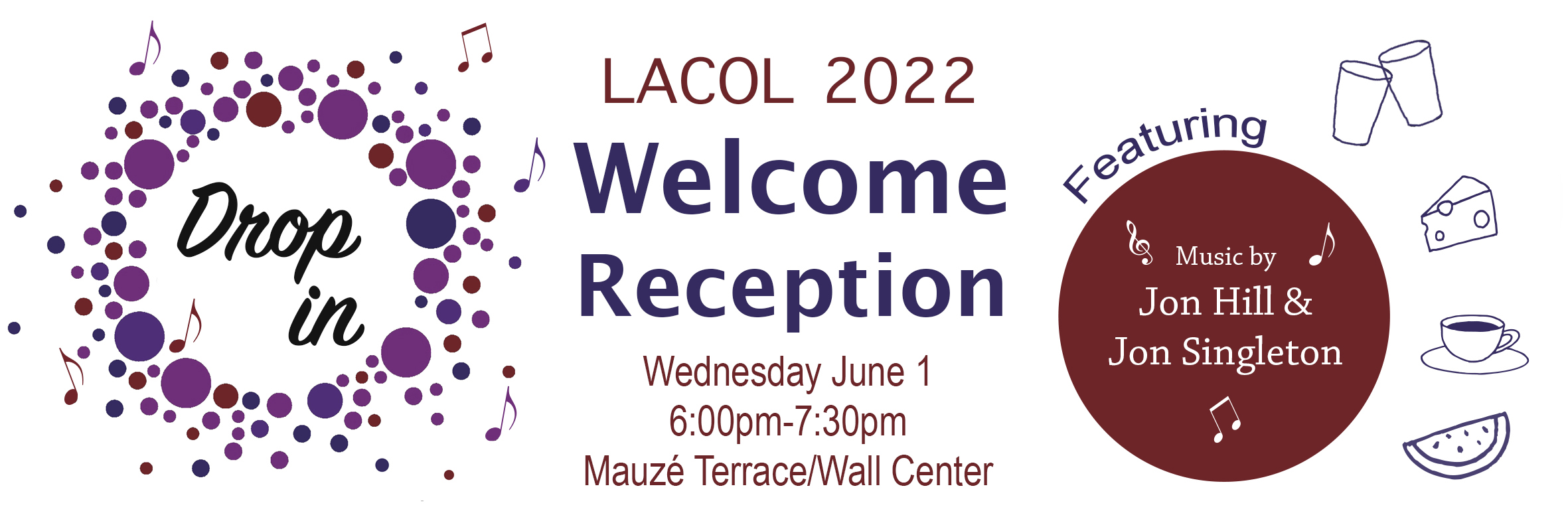
REGISTRATION
Are you based at one of the eleven member campuses of LACOL? Consider joining the LACOL 2022 workshop at Davidson College! Scroll down to read more about the workshop.
Late Registration: Registration is Closed. (more…)
June 2nd at Davidson College
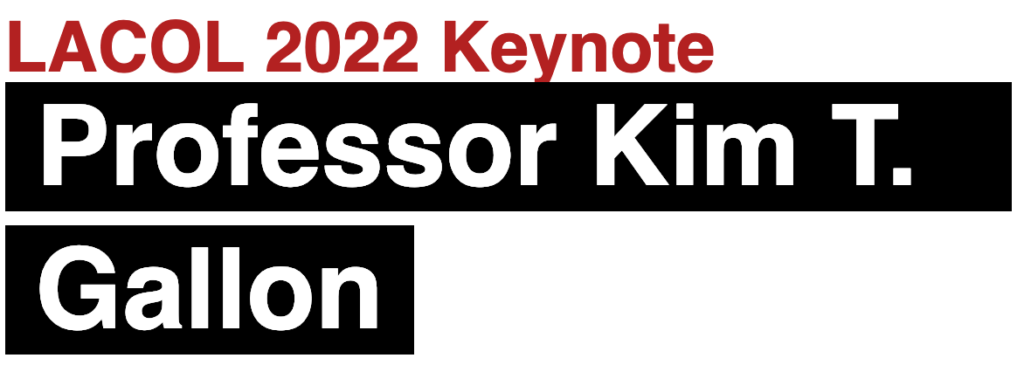
LACOL 2022 Keynote Address: Crisis, Collaboration, & COVID: A Digital Blueprint for Racial Equity and Social Justice
Date/Time: Thursday, June 2, 9:30-10:30am, Wall Center Atrium
Kim Gallon is an Associate Professor of History at Purdue University. Her work investigates the cultural dimensions, including race and medicine, of the Black Press in the early twentieth century. She is the author of a number of articles and essays as well as the book, Pleasure in the News: African American Readership and Sexuality in the Black Press (University of Illinois Press, 2020).
Gallon is also the author of the field defining article, “Making a Case for the Black Digital Humanities” and the founder and director of two black digital humanities projects: The Black Press Research Collective and COVID Black
She also works in instructional and e-learning design to develop curricula for secondary, higher education, and adult learners. Her most recent work in this area includes working with the American Medical Association to develop e-learning modules on the history of race and medicine.
Gallon is the recipient of fellowships and grants from the American Council of Learned Societies, National Endowment for the Humanities, and the Spencer Foundation for her work in the black digital humanities and adult education.
Bayesian Statistics – Shared Course Opportunity, Spring 2022
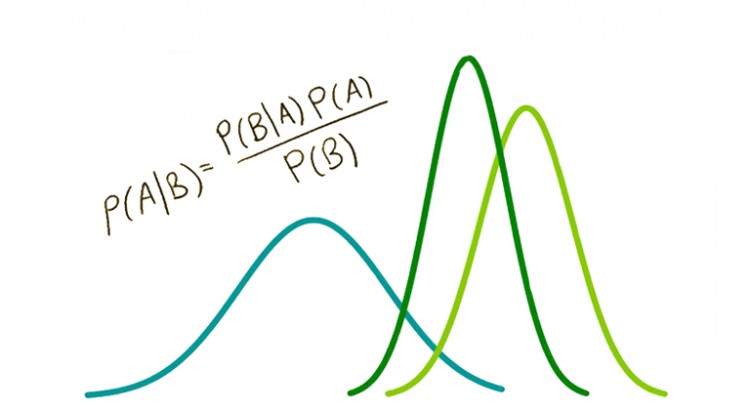
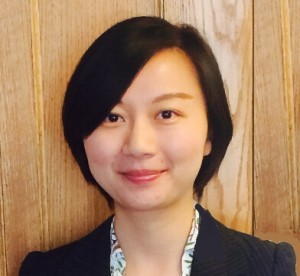
Shared LACOL Course: Bayesian Statistics
Instructor: Professor Jingchen (Monika) Hu, Vassar College
Syllabus & Enrollment Info: http://bit.ly/bayesian-stats
Topics and Objectives:
- Understanding of basic concepts in Bayesian statistics and ability to apply Bayesian inference approaches to solve scientific research problems and real-word problems.
- Ability and skills to use statistical programming software (R/RStudio and JAGS) to realize Bayesian analysis.
- Practice of reading, discussing, and critiquing statistics research journal papers.
LACOL Reading Group – Fall 2021
Attention Faculty and Staff! Consider joining a multi-campus reading group this fall based on the new book,
Skim, Dive, Surface: Teaching Digital Reading
Reading Group Meeting Dates, Fall 2021:
- October 27
- November 3
- November 10 discussion with the author Jenae Cohn
Reading Group Registration: closed
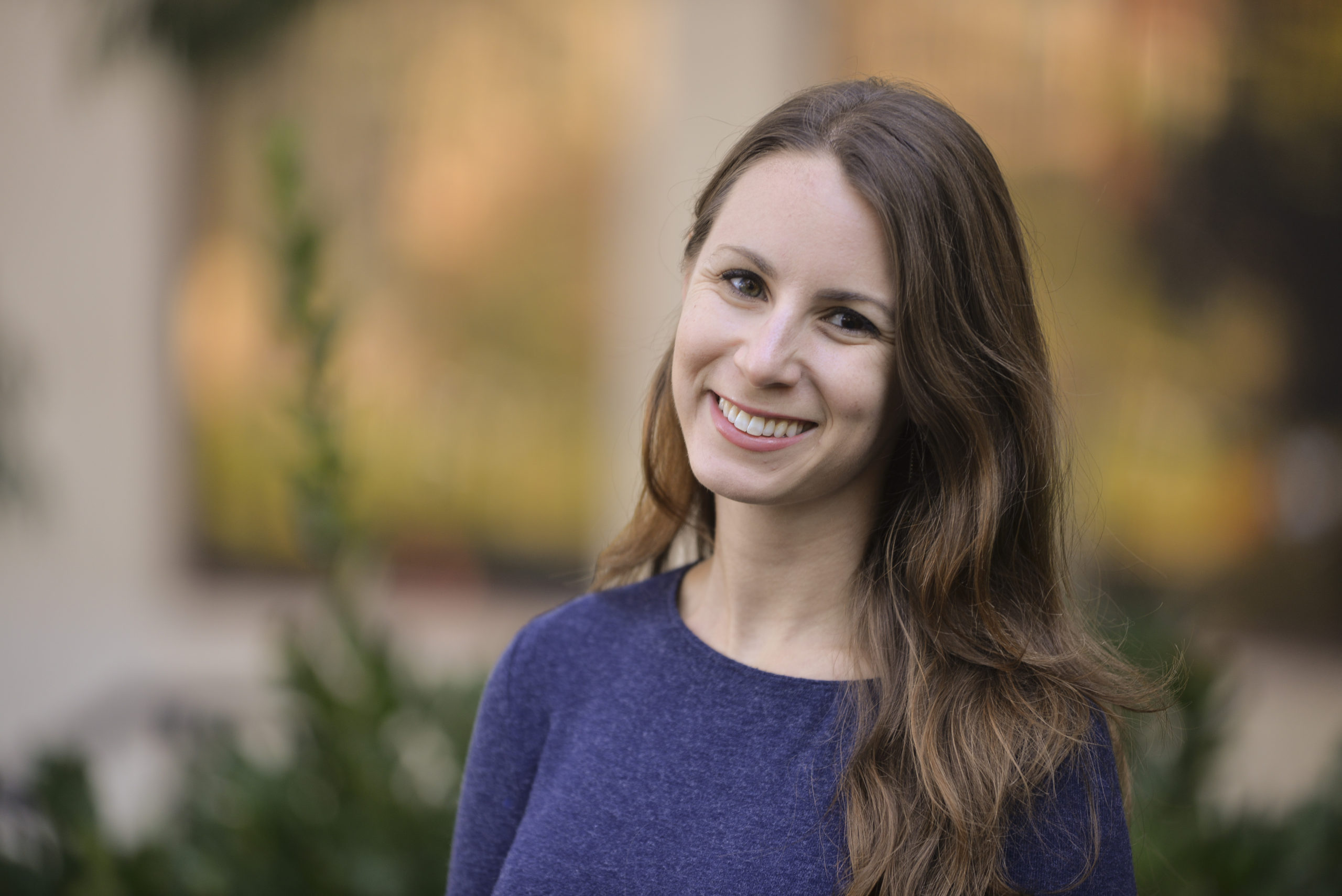
Reading on a screen is a different experience than reading off of paper. But is it necessarily worse, more distracted, or more superficial? In her new book, Skim, Dive, Surface: Teaching Digital Reading, Dr. Jenae Cohn make the case that there are distinct strategies readers can employ for reading in a variety of spaces, from on the screen to off. This book makes a call for readers to embrace a range of reading practices available to them and to make choices about where, how, and why they read based off of their purposes for reading.
 Jenae Cohn writes and speaks about digital pedagogy and online teaching and learning. A trained writing instructor, Jenae has taught online, hybrid, and face-to-face composition courses, and supports faculty in the development of courses across modalities. She offers workshops on topics related to online instruction, humanities pedagogy, and digital literacy. Her research interests include digital/information literacy, metacognitive thinking, and reading and writing across the curriculum. Prior to her appointment at CSU-Sacramento, Dr. Cohn was an Academic Technology Specialist at Stanford University for 4 years where she helped foster remote learning and technology-enriched curriculum for 40+ instructors. At Stanford, she also designed in-person, online, and blended workshops for 120+ students per year. She also developed a Teaching With Technology page for Stanford University.
Jenae Cohn writes and speaks about digital pedagogy and online teaching and learning. A trained writing instructor, Jenae has taught online, hybrid, and face-to-face composition courses, and supports faculty in the development of courses across modalities. She offers workshops on topics related to online instruction, humanities pedagogy, and digital literacy. Her research interests include digital/information literacy, metacognitive thinking, and reading and writing across the curriculum. Prior to her appointment at CSU-Sacramento, Dr. Cohn was an Academic Technology Specialist at Stanford University for 4 years where she helped foster remote learning and technology-enriched curriculum for 40+ instructors. At Stanford, she also designed in-person, online, and blended workshops for 120+ students per year. She also developed a Teaching With Technology page for Stanford University.
Jenae received a doctorate in Writing, Rhetoric, and Composition from the University of California-Davis and a BA in English with an emphasis on creative writing from the University of California, Los Angeles.
Book Group Info & Materials
Promoting Equity and Justice through Pedagogical Partnership
LACOL Reading Group – Summer 2021
Promoting Equity & Justice through Pedagogical Partnership
Book Group Dates: August 3, 10, 17, and 24, 2021 at 4:00-5:15pm Eastern time via Zoom. Details below.
Book Group Registration: registration is closed
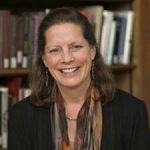
Structures of and practices in higher education have long caused harm to students underrepresented at our institutions. A new book Promoting Equity and Justice through Pedagogical Partnership provides a framework for understanding the epistemic, affective, and ontological harms underrepresented and equity-seeking students experience.
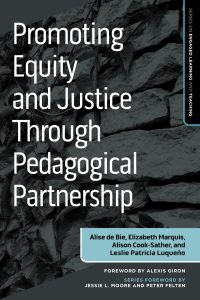 This book group, led by co-author Alison Cook-Sather, devoted four sessions to working through the seven chapters of the book and building on participant responses to questions included in the book’s resources. The goal is to draw on the book’s concrete examples as well as participant responses to engage in dialogue, reflection, and planning for action in relation to the ways student-faculty pedagogical partnership can contribute to creating more equitable education.
This book group, led by co-author Alison Cook-Sather, devoted four sessions to working through the seven chapters of the book and building on participant responses to questions included in the book’s resources. The goal is to draw on the book’s concrete examples as well as participant responses to engage in dialogue, reflection, and planning for action in relation to the ways student-faculty pedagogical partnership can contribute to creating more equitable education.
Book Group Info & Materials
LACOL 2021 – Poster Session
from the LACOL 2021 Workshop hosted by Hamilton College … Digital Posters!
Also see: https://conferences.hamilton.edu/lacol2021/posters
Advancing Data Curation and Archiving

An Application of Coding to Lab Management in the Geosciences
- Tierney Latham ’21, Hamilton
- Cat Beck, Assistant Professor of Geosciences, Hamilton
- Bruce Wegter, Sciences Instrumentation Technician, Hamilton
- Ahra Wu, Data Science/Analysis Research Librarian, Hamilton
Joining the Team

Collaborating with Athletics for Increased Student Success
- Kristin Strohmeyer, Research and Community Engagement Librarian, Hamilton
- Nhora Lucía Serrano, Associate Director for Digital Learning and Research, Hamilton
“No Time to Play Around”

Addressing Equity and Cultivating Play with Library Workers
- Lorin Jackson, Interim Head of Access & User Services, Black Studies Librarian, Swarthmore
LACOL 2021 – Featured Presentation
Up Close and Personal: Art Museums and Digital Models
Beth Fischer, Postdoctoral Fellow in Digital Humanities, Williams College
Amber Orosco, MA candidate, Art History Graduate Intern, Williams College
Liz Gallerani, Curator of Mellon Academic Programs, Williams College
Moderated by Austin Mason, Assistant Director for Digital Humanities & Director of Digital Arts & Humanities, Carleton College
How do you bring digital imaging, including RTI (reflectance transformation imaging) and photogrammetry, to students in a liberal arts environment? How do digital models enhance and not replace in-person learning with art?
This panel presents strategies for digital imaging that focus on digital accessibility, equity, agency, and liberal arts learning.
In fall 2020, the Williams College Museum of Art launched a minimal-budget imaging project that initially responded to concerns about equity for hybrid and remote learning. This panel presents strategies for digital imaging that focus on digital accessibility, equity, agency, and liberal arts learning. The pilot program at the Williams College Museum of Art aims to make objects more engaging in a time of distance, while remaining attentive to data bias and trying to highlight under-used objects. Goals of the project include increasing comfort level with objects and digital models, and also encouraging agency, exploration, and play.
By sharing our own iterations throughout this ongoing project, we offer a range of possibilities to participants who may wish to explore similar methods and applications. Working with limited staff and resources, we focused on individual strengths and perspectives–Liz with the collection, teaching, and relationships with faculty across campus; Beth with digital humanities, teaching, and entry-level digital technologies; Amber with prior experience using RTI and perspective as a graduate student who is both learning from and teaching with models. Amber is the Academic Programs Intern at the museum, and is also the Teaching Assistant in a studio course that is a key collaborator in this project.
LACOL 2021 – Featured Session
Aus der Finsternis: Cross-Institutional Intermediate German with Dark (Netflix 2017-20)
Sunka Simon, Professor of German, Film and Media Studies, Swarthmore College
Matthew Miller, Associate Professor of German, Colgate University
Pia Eger, DAAD Fellow, Colgate University
Three colleagues explore both synchronous and asynchronous activities and projects built on cross-institutional team-screenings of weekly episodes of Dark’s first season on Netflix.
This presentation showcases the pedagogical and technological tools utilized to achieve the learning outcomes for the LACOL sponsored cross-institutional digitally connected Intermediate German course in the fall semester of 2020 between Swarthmore College and Colgate University.
Read more about this LACOL project: Intermediate German Digital Link-Up (Fall 2020)
LACOL 2021 – Featured Presentation: QLAB
Quantitative Skills in Context. What are the “Keepers” from the Past Year of Teaching?
Melissa Eblen-Zayas, Professor of Physics, Carleton College
Laura Muller, Director of Quantitative Skills Programs and Peer Support, Williams College
Moderated by Mihai Stoiciu, Professor of Mathematics, Williams College
LACOL 2021 Play and Innovation
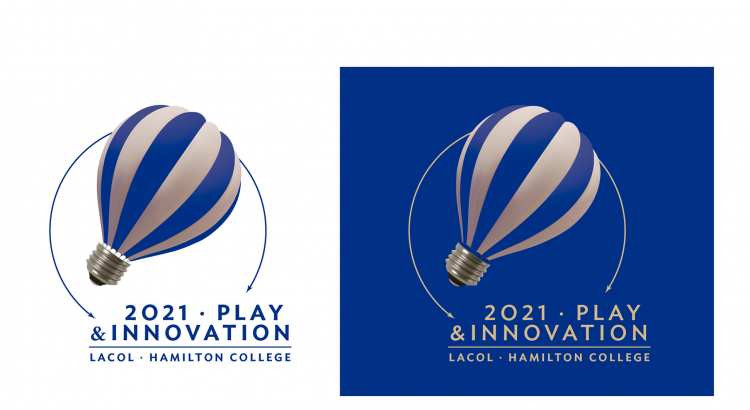
Consortium-wide LACOL Workshop
June 21-23 virtually @ Hamilton College
For Full details on the Workshop Program, Schedule, and Registration, see: https://conferences.hamilton.edu/lacol2021
The LACOL 2021 Workshop is over! Thanks to Hamilton College for hosting.
Hamilton College hosted the summer 2021 consortium-wide LACOL, June 21-23, 2021. With “Play and Innovation” as the official 2021 theme, this summer gathering brought together faculty, technologists, research librarians, academic support specialists, and other educators and students for collaborative exchange and playful discussion. (more…)
LACOL 2021 Keynote: Bryan Alexander (June 21)
Featured Keynote Day 1:
Gaming and Liberal Education
June 21 @ 1:30pm Eastern via Zoom
Dr. Bryan Alexander
Futurist and Author, Academia Next
@BryanAlexander
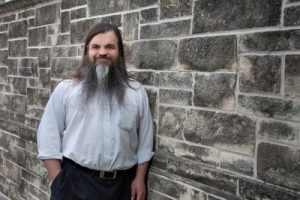
Bryan Alexander is an award–winning, internationally known futurist, researcher, writer, speaker, consultant, and teacher, working in the field of higher education’s future.
He completed his English language and literature PhD at the University of Michigan in 1997, with a dissertation on doppelgangers in Romantic-era fiction and poetry.
Then Bryan taught literature, writing, multimedia, and information technology studies at Centenary College of Louisiana. There he also pioneered multi-campus interdisciplinary classes, while organizing an information literacy initiative. (more…)
